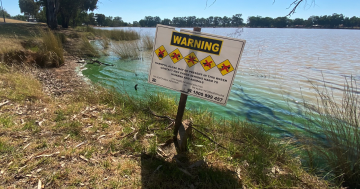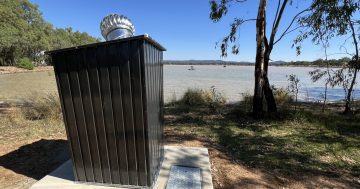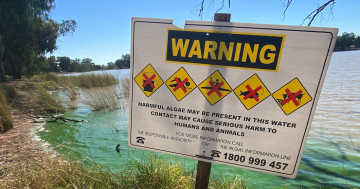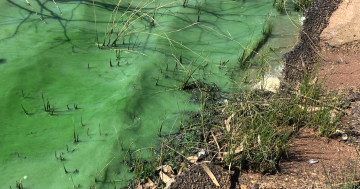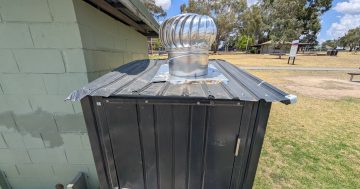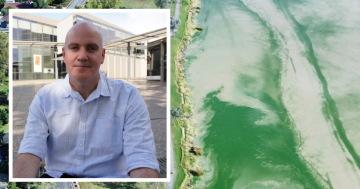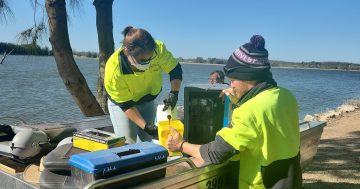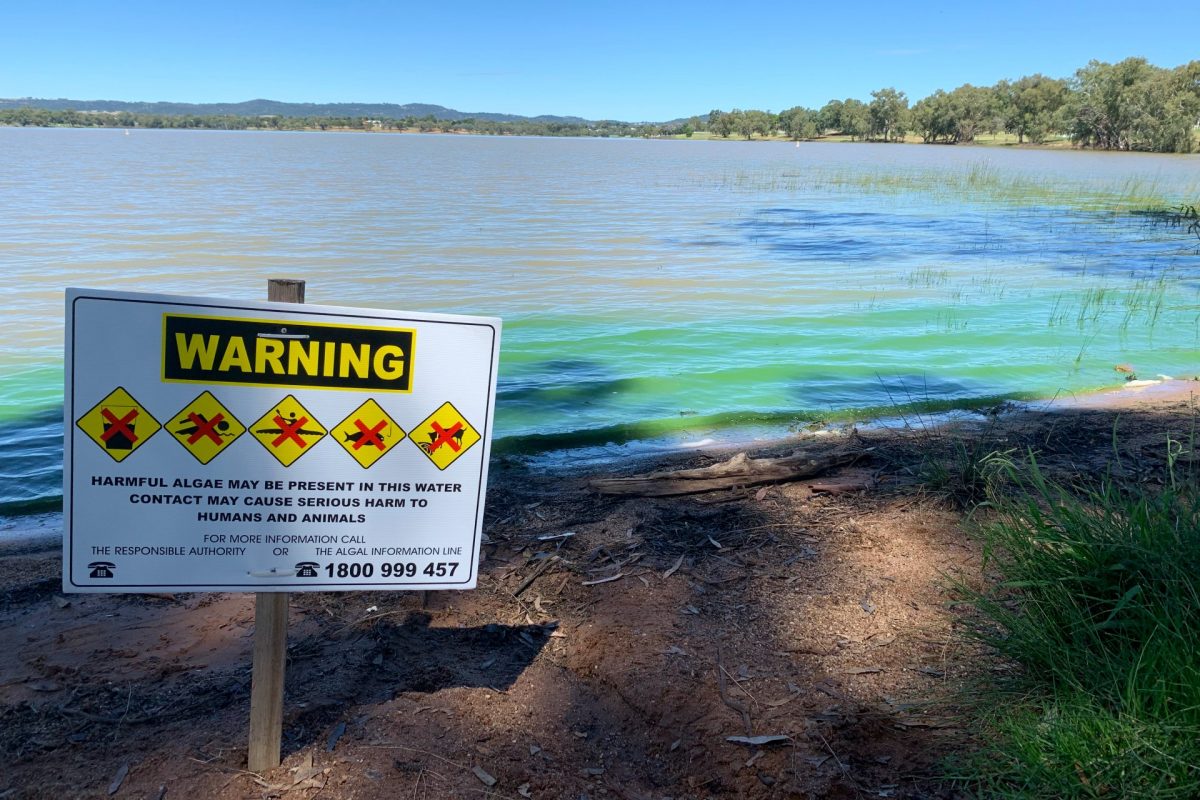
Wagga Wagga City Council has issued a blue-green algae alert at Lake Albert. Photo: City of Wagga Wagga.
In the same week that the latest trial to tackle water quality issues in Lake Albert is about to begin, Wagga City Council has agreed to receive a report that captures all the research that has been done in previous years.
Deputy Mayor Georgie Davies had initially proposed a new independent scientific report but amended her notice of motion (NOM) to consolidate existing reports first.
“If these reports and research exist, and I hope it can be recovered, and if it answers all the questions that we need, then of course we won’t need to take this report further,” Cr Davies said.
“But as it currently stands, I really strongly believe that we as a council need more answers.”
Later this week, a six-month trial of Hydro2050, an ozone-based approach to combat cyanobacteria (blue-green algae), will begin at a cost to ratepayers of $300,000.
Ms Davies expressed concern that it could be the latest in a long line of Hail Mary approaches to dealing with the toxic issue that routinely keeps the lake closed to the public.
“We’re asked to choose something with our very limited knowledge on their likelihood of success, and I do believe that we’re flying blind,” she said.
“Councillors are currently relying on staff and members of the community when looking at treatments for blue-green algae, and by no means is this a criticism, but they’re not experts in the area and we really do need some more information.
“There could potentially be ways in which we could at least reduce the blue-green algae issue by taking preventative steps rather than reactionary steps.”
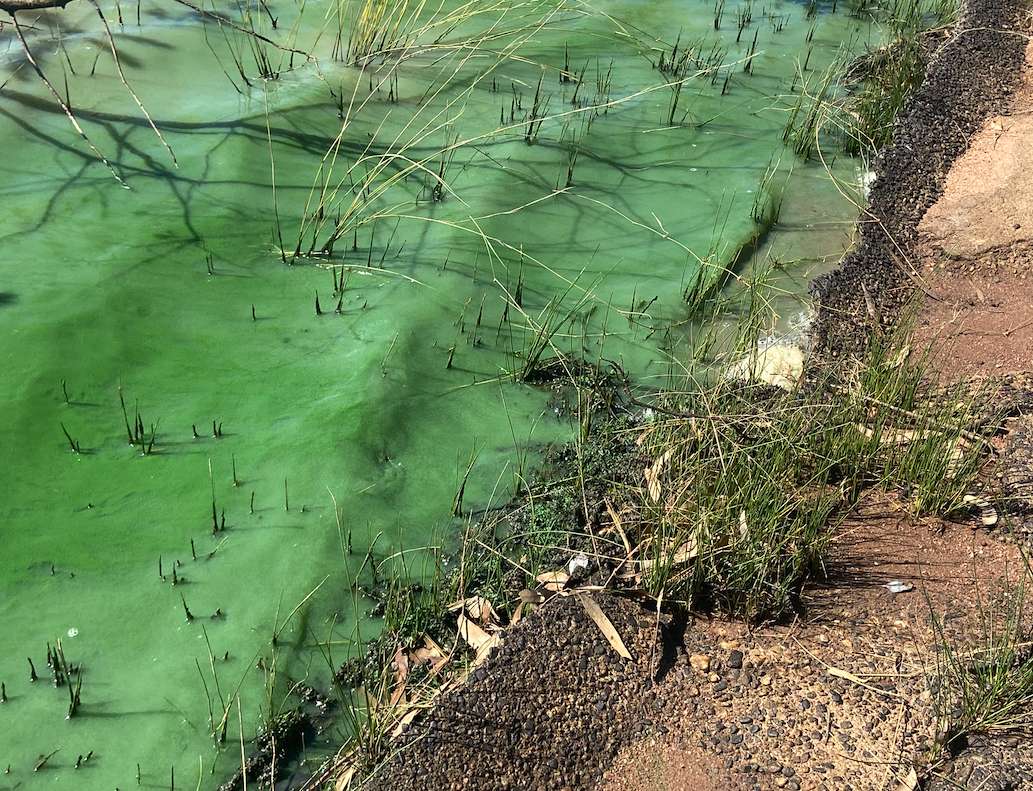
Cyanobacteria, (blue-green algae) kept Late Albert closed to the public for much of 2024. Photo: Chris Roe.
Cr Amelia Parkins expressed her concern about the amount of money that had already been spent on reports and trials with little improvement to the water quality of the lake.
“I find it really confusing, contradictory, ironic and just super concerning that at this point of the council term, we’re now looking for another report which is likely going to tell us information … that we’ve already got in front of us,” she said.
“I would hope that that information has informed council staff when they’ve provided us with recommendations.”
Former councillor Paul Funnell had earlier addressed the meeting to speak against the NOM, but supported the amendment to review previous studies.
“The [notice of] motion that should be before you tonight … should be, where are these reports? Can we please have them? Can we have all those questions and all that information brought to us before you spend one more cent?” he said.
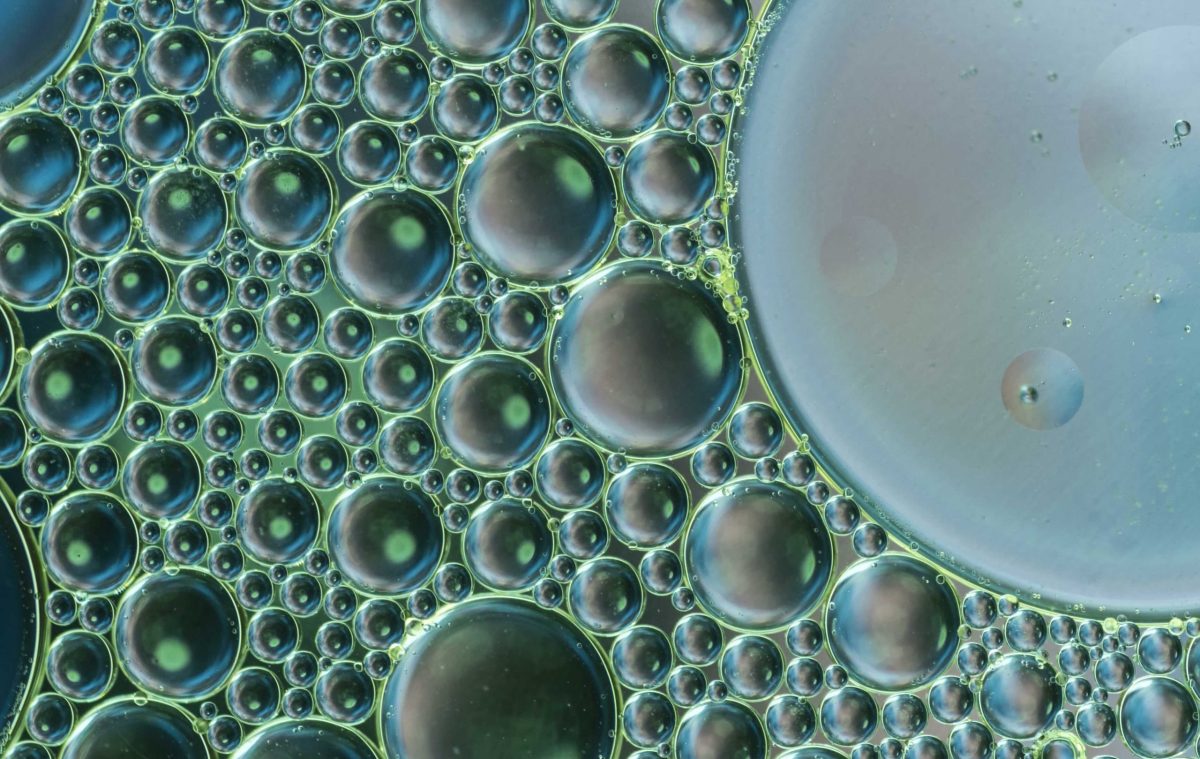
Hydro2050 will begin a six-month trial this week pumping nanobubbles filled with oxygen and ozone into Lake Albert. Photo: Supplied.
Mr Funnell also expressed his concern that the upcoming six-month trial of the Hydro2050 technology would not be sufficient to determine its effectiveness.
“It needs to be 12 months; it’s all environmental. It takes 12 months to run for four seasons. You’re going to get two,” he said.
Cr Parkins agreed that six months would not allow full consideration of all the contributing factors such as “weather, seasons, rainfall, lack of rainfall”. She also questioned council staff on whether there would be ongoing costs after the six months if the trial was deemed successful.
Chief Operating Officer Scott Gray confirmed that the $300,000 covered only the Hydro 2050 trial and that there would be additional costs if it was continued.
“And then if we do this, be successful and we continue to use it, any money we’ve spent on leasing them – we’re leasing them at the moment – can go towards reducing the purchase price,” he said.
“So the only physical infrastructure we’ll be putting in will be for the electricity.”
The amended NOM was passed with only one objection from Cr Parkins.
This Friday, Hydro2050 will begin the installation of five of its water remediation units at the three corners of Lake Albert.
The hydro units produce vast amounts of nanobubbles filled with oxygen and ozone that they claim will provide an “effective, safe and sustainable method for eliminating blue-green algae and algae”.







